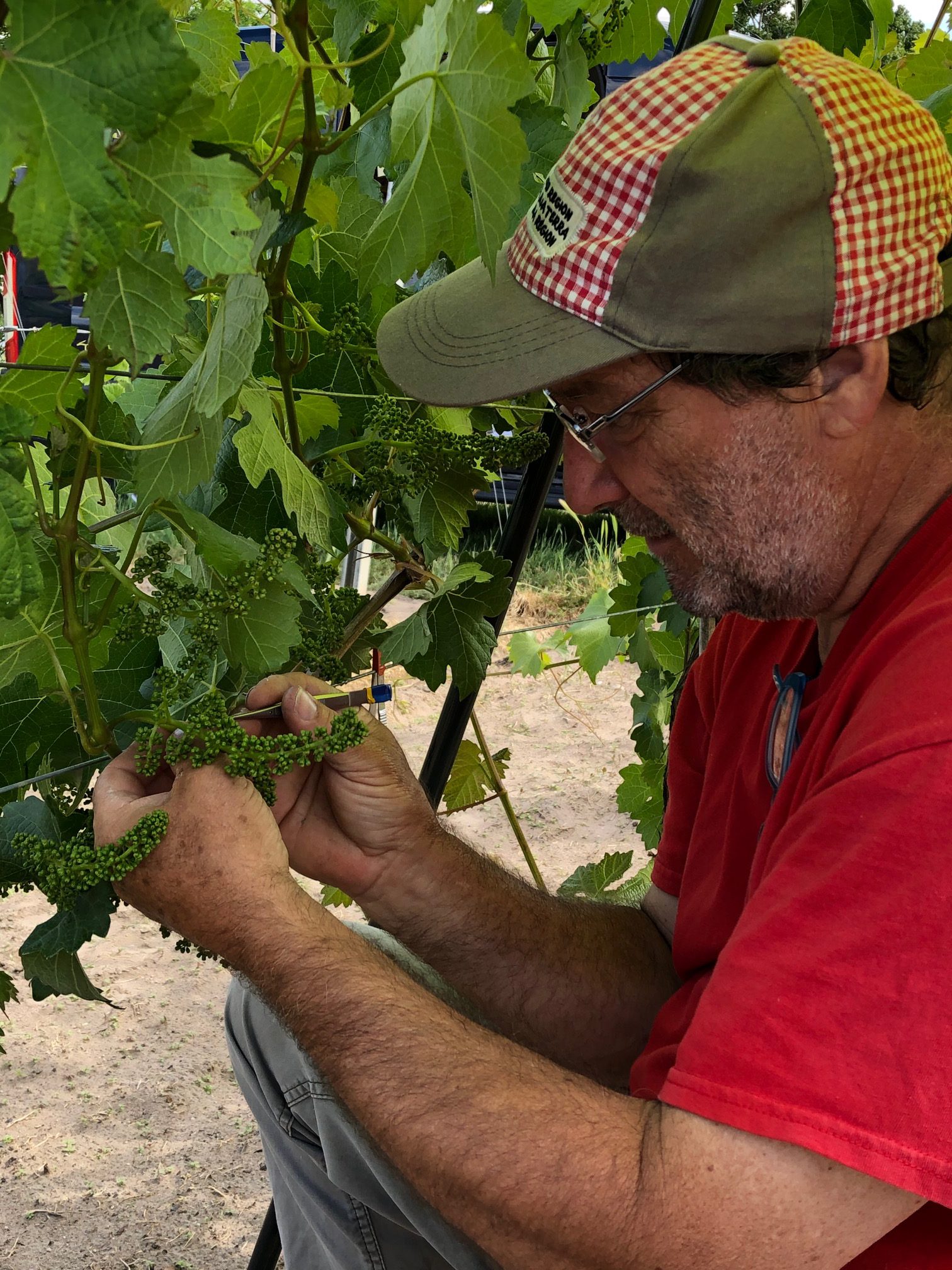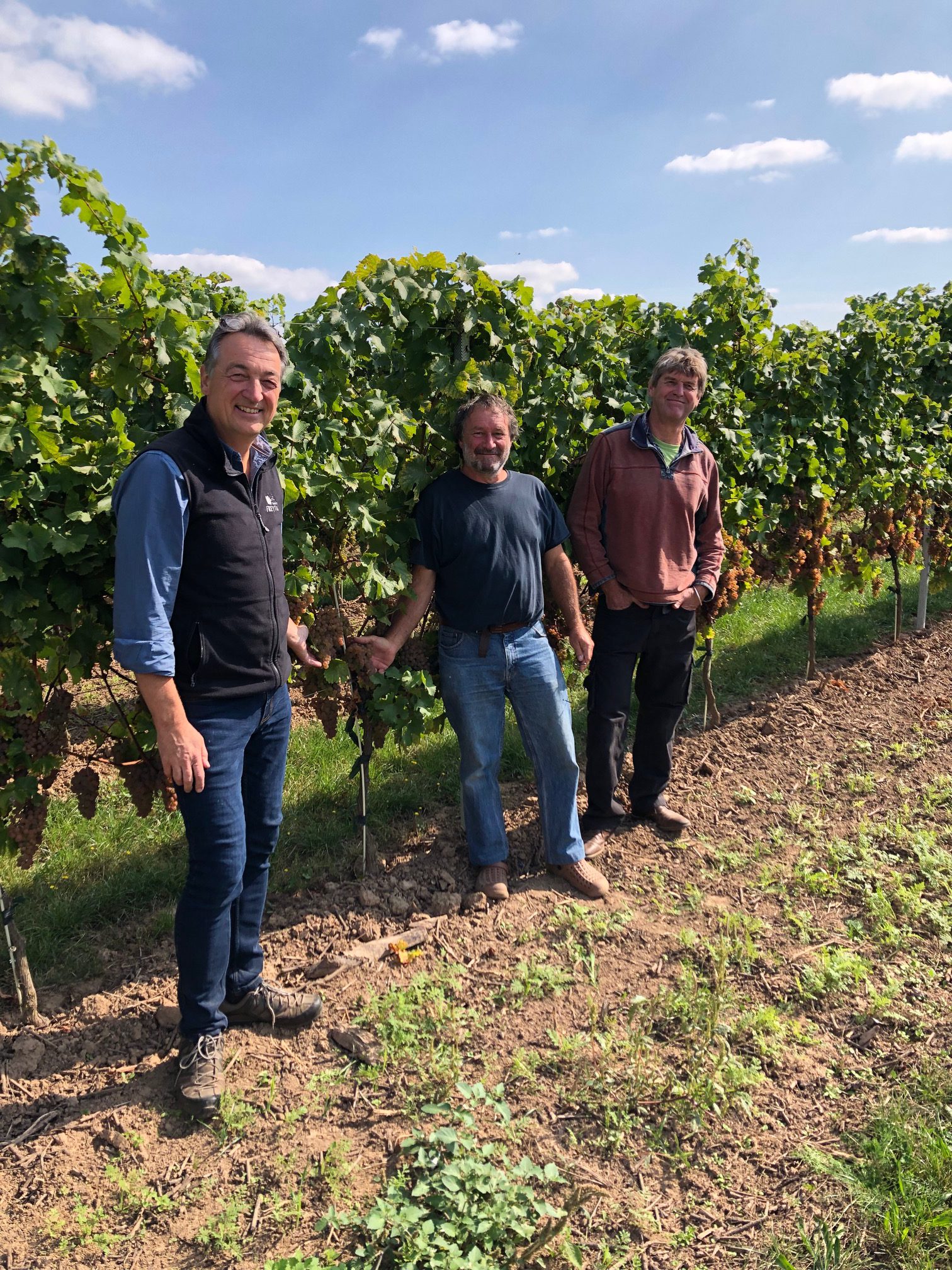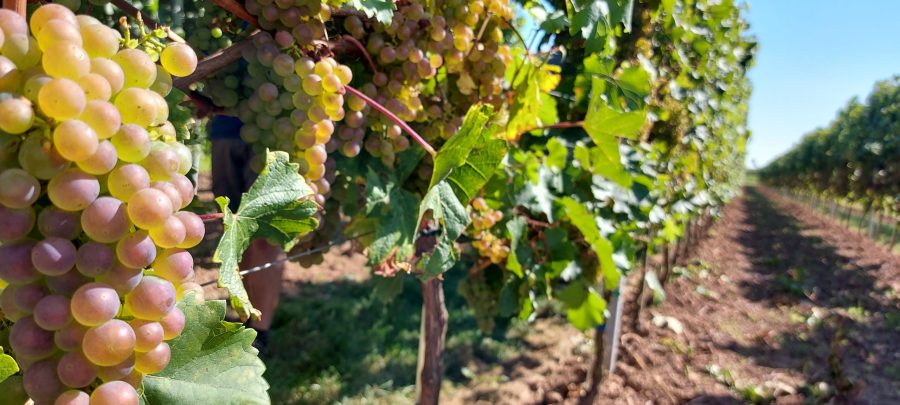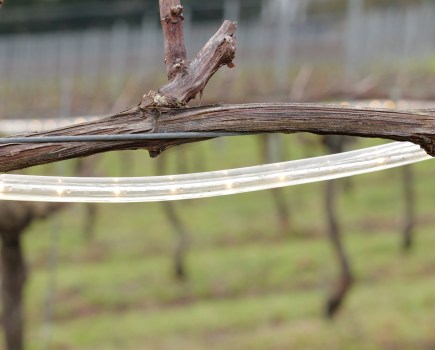Fungal resistant hybrid varieties may be the answer to sustainable winemaking, agrochemical reductions, and reducing costs of production – but only if they produce quality wines. Vineyard finds out if the wine world bias against hybrids is starting to wane as interesting, good value PIWI wines emerge.
PIWIs are grape varieties that have been bred and selected from Vitis vinifera and non-vinifera parents, to have a high resistance to fungal diseases, as well as other attributes. The name, Piwi is a German abbreviation for Pilzwiderstandsfähig – essentially meaning fungal resistant. Hybrids are far from new and have been grown many years, including in the UK, but the newer varieties now being bred – and their wines – are fast gaining attention, particularly overseas, alongside the push for environmental sustainability.
Sam Doncaster is a British-born viticulturist who is involved with Piwi breeding programmes and field selections in Germany with Freytag Nurseries. In Sam’s view, “there are so many reasons why UK wine producers should be considering PIWI vine varieties. We know that V. vinifera is severely challenged to provide good wine grape varieties for the UK climate, overall – so why not look elsewhere? We know that there are restrictions to V. vinifera profitability through its low yields – so why not look elsewhere? We know that V. vinifera are expensive to grow – so why not look elsewhere? We know that V. vinifera are quite limited in their expression of flavour profile – so why not look elsewhere? And, in all honesty, what red V. vinifera variety consistently, and commercially, gives satisfaction in the UK climate?”
The Piwi’s breeding provides natural resistance to fungal diseases, which reduces the need for spraying with agrochemicals, resulting in lower tractor emissions and reduction in compaction – which can only help to encourage better soil health. “There are other advantages also,” explains Sam. “In terms of being fungal resistant, modern breeds might also allow a more secure autumnal period of ripening. This is a simple statement of comparison, where vines that show some resistance to bunch botrytis will always hold a distinct advantage over those that rot easily.
“This is not only relevant to the grape clusters, but also for the effectiveness of the leaf, where these Piwi through other forms of resistance can show better ‘quality’ of leaf way later into the autumn. Other matters like later bud burst might also be of merit.” Sam added.
“I think the UK has only scratched the surface of its own wine making potential,” commented Joel Jorgensen, consultant viticulturist and MD of Veraison. “Many of the Piwis grow well, crop reliably and yield higher than our “traditional” sparkling varieties. I have tasted many fine examples of both still and sparkling wines made in Germany, and the UK, and there is no reason why we can’t match or even improve on these.
“With climate change, and more conscious consumers, we need to future proof our vineyards and plant varieties that allow us to reduce all our inputs like pesticides, fuel, frost protection and labour,” Joel added.
Research and breeding efforts
Piwi varieties are painstakingly breed interspecific hybrids. “Cross-pollination can occur naturally, but we give ‘Mother Nature’ a helping hand,” explained Volker Freytag of Freytag Nurseries, Germany. “We select for desirable characteristics from Vitis vinifera and other species of the genus Vitis and the breeding programme can take up to 30 years. Then, of course, the official approval of new varieties also takes time.
“The aim is to develop new grape varieties that will meet future challenges in the vineyard, such as resistance to disease, but equal importance is placed on the flavour profile of the resulting wine – as it has to be marketed. Piwi wines are increasingly widespread in Germany and are becoming popular in other countries. There is no point breeding these new varieties if the wine is not good to drink!” exclaimed Volker.
“We also need to recognise that all manner of horticulture and agricultural crops, not just vines, are constantly being subjected to careful breeding and selection. Of course, this is for many reasons, but in simple terms it can be summed up as ‘improvement’,” added Sam.
The Piwi experience
In managing vineyards for clients, Joel Jorgensen has first-hand experience of some of the Piwi varieties being grown in the UK. “So far, Sauvignac and Cabaret Noir are leaders for me, both bud late to avoid spring frosts, grow fast and upright making them easier to handle, and ripen a good two weeks ahead of Pinot Noir. Cabaret Noir reaches phenolic ripeness quickly and produces a beautiful blue/black skin colour, creating a lovely deep red wine with ripe tannins that soften the flavours nicely.
“There’s a lot of hype around Piwis being disease resistant and so far, I have found them to be more resistant than the likes of Chardonnay, Pinot Noir and Meunier however, they are not quite ‘bomb-proof’ and do unfortunately still need some timely treatments in wetter years.
“At Veraison, we are definitely seeing an increasing interest in Piwis, and we are trialling a few more varieties this season such as Cabernet Blanc, Divico and Rinot. So far, they are growing with ease – but the true test will be in the wines they produce. In fact, in 2022 we are planting a couple of large new vineyards with exclusively Piwis!
“Perhaps other, and more subtle, aspects of new vine breeds might include matters like canopy management,” added Sam. “There are some varieties that have a noticeable strong upright growth tendency, coupled to a less dense upper canopy growth. This could result in better photosynthesis perhaps, and ease of management.
“It might be possible to select new varieties that could be grown through mechanical means, such as ‘minimal prune’. I’m certainly aware of minimal prune Cabernet Blanc being grown in the Pfalz, where the cost of growing is very much kept in check…this being modern business.
“Other people might seek varieties that allow spur pruning, on account of basal buds being more fruitful, and thus offering management options that most V. vinifera cannot give in a cool climate.
“Like V. vinifera yields from new varieties can be variable, but certainly new varieties can offer higher yields than V. vinifera varieties in the UK. Generally, with Piwis, people find that it is convenient to start with an excess of crop loading, and then thin down in a controlled fashion. Over time people learn what is a commercial balance between levels of ripeness, and cost of production.
“This year there have been devastating periods of downy mildew infections across Europe, with dirty brown blocks of vines common place – but not so with the Piwi varieties, not to the same degree.” Sam added.
The gatekeepers
Despite these advantages, the reception to Piwis in the wine world has been a challenge, maybe their reputation has been darkened by the hybrids of the past. However, a few UK producers are managing to establish their wines in the market, including Sov’ran Cabernet Noir 2018, from Divergent Drinks, the producers of the Charmat method sparkling wine, Fitz.
“Sov’ran is our winemaker Gareth Davies’ passion project,” explained Oliver Peniston-Bird
Head of Sales and Marketing at Divergent Drinks. “2018 was a fantastic vintage and we had the pleasure of processing some phenomenal Cabernet Noir. This variety has great resistance to the challenging UK climate and produces fruit that allows us to create some truly interesting and delicious wines. Produced in exceptionally small volume, Sov’ran Cabernet Noir 2018 leads with cassis, cigar box and mocha on the nose. Structured, yet delicate tannins give way to stewed plum, red cherry, baking spice and violet, with a long and supple finish. We have had such a great response from consumers and retailers and are looking forward to producing more vintages of Sov’ran and extending the range in the future,” added Oliver.
“I think that PIWIs have real potential in the market,” commented Paul Harley, Wine Business Programme Manager at Plumpton College. “What will hold them back in the short to medium term is the lack of awareness around the names of varieties and what they would be expected to taste of.
“New varieties and flavours naturally appeal to the adventurous wine consumer, but the majority of UK wine buyers currently want certainty and reliability – so like to play safe with regions and varieties that they already understand. It is about perceived risk when purchasing wines from novel varieties.
“However, it is great to see exciting producers out there – making first successful forays – Sov’ran for example. I think it will be interesting to see how quickly other producers come on stream with products and when the larger retailers (multiples, independents and supermarkets) start to have them listed as part of their range.” Paul added.
“As a wine buyer the most important thing to me is being able to offer the customer value for money,” explained Elizabeth Kelly MW, Wine Buyer, Majestic, “and so that is what I would be expecting from any wine I’m tasting from any grape.
“Grape varieties are very important to customers – they have become synonymous with style. But customers are willing to try – if you think about the diversity of Italian grape varieties, and varieties that customers are currently buying compared to even ten years ago, it is possible to get customers to accept something new – IF the quality is there.
The Piwi names are both familiar but different, so they could be confusing, therefore it is important to give good messaging to customers about what wines taste like. As an example, it wasn’t too long ago that customers would not have recognised Bacchus – and now it is synonymous with English still wines.
“I think that anything that reduces the amount of spraying required in the vineyard is a very good thing – protecting the health of our soils is essential for the future – as there is evidence of healthy soils providing better carbon capture. But these varieties cannot be used just for the sake of more sustainable viticulture – the resulting wines must be good. I am a massive champion of sustainability in English vineyards but if the vineyard is not producing a quality saleable wine, then it will not have an economically sustainable result,” said Elizabeth.
Next steps – call for trials
“We all have a lot of learning to do,” commented Joel. “Growing the grapes is one thing, but our winemakers will need to learn how to work with these new varieties, experiment with different techniques and yeasts, and learn how emphasise the grapes best features. It would be great to see some of the big players pave the way with a few large blocks and get consumers excited about what else the UK has to offer.
“These new breeds of vines sometimes pack such a punch of flavour and it’s difficult to know how to tone this down,” commented Sam. “However, these varieties can lend themselves well to being consistent backups in the production of wines made from blending in some part. I recently had a bottle of a UK produced Sauvignon Blanc, which I heard had some 10% or 20% Ravel Blanc in it – a good wine! Ravel Blanc is an old variety – if I can use that term in an ever-changing world – that almost cannot fail to produce well-ripened grapes in cool years,” Sam added.

Valentin Blattner, Swiss grape geneticist, grape breeder and winemaker,
carrying out selection for breeding

Volker Freytag, Valentin Blattner and Sam Doncaster in a German Sauvignac vineyard, in October




